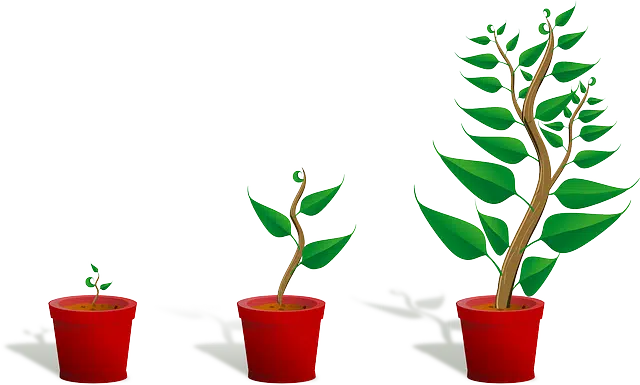
In living beings, growth is linked to the increase in the size and number of cells.
Growth is the action and effect of growing . This verb, in turn, refers to taking natural increase , to producing increase by adding a new material or to acquiring increase in a symbolic sense.
In the case of living beings, the irreversible increase in size that an organism experiences due to cell proliferation is known as growth. This proliferation produces more developed structures that are responsible for biological work.
Growth, therefore, involves an increase in the number and size of cells . The phenomenon occurs thanks to the assimilation of nutrients: without nutrients, growth is defective or absent.
Hormones and growth
Hormones are also protagonists of the growth process since they are responsible for accelerating or inhibiting cell division. Among the main hormones that contribute to the growth of human beings are estrogen (produced in a woman's ovaries, helps the development of mammary glands), corticosterone (accelerates metabolism), somatotropin (regulates body development and bone growth) and testosterone (activates and maintains the external sexual characteristics of the man ).
It is important to keep in mind that the growth of the living being continues constantly until adulthood arrives and the organism reaches maturity .
In the field of botany the term growth is also used. In it, it is common to speak of anomalous secondary growth, which is that which occurs in a series of plants and is not the usual growth that occurs in eudicots or gymnosperms. In this case, it mainly takes place in the so-called monocotyledons.
The concept in gynecology
In the same way, within the field of medicine and specifically gynecology, the term that we are now addressing is also used. Specifically, it talks about what is known as delayed intrauterine growth, which makes it clear that the fetus is suffering from a delay in its development .
Poisoning or fetal or maternal malnutrition are the two main causes that can bring about this delay in the growth of the fetus, which fundamentally translates into the fact that it has a weight that is far below what is normal.

In the economy and in other areas, growth is associated with the increase in various indicators.
Problems in the growth of a fetus
However, congenital malformations, maternal alcoholism, circumvallate placenta or genetic syndromes can also be the reason for this growth delay.
There are various types of growth problems of this type. This would be the case of intrinsic, which is when the cause of those are defects in the chromosomes of the fetus; the idiopathic, which occurs when the origin of all this is completely unknown; the extrinsic, which is a consequence of a placental pathology; or the combined one, which is the result of a mixture of extrinsic and intrinsic factors.
symbolic use of the notion
On the other hand, growth can transcend the physical. Economic growth , for example, is linked to an increase in productivity, consumption and other indicators of the economy : "Argentina has had nine consecutive quarters of economic growth."
One can also talk about spiritual growth , inner growth , etc., referring to symbolic or non-material issues.
